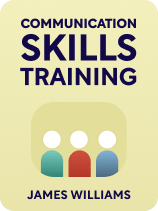

This article is an excerpt from the Shortform book guide to "Communication Skills Training" by James Williams. Shortform has the world's best summaries and analyses of books you should be reading.
Like this article? Sign up for a free trial here.
When was the last time you met someone new? Did you feel confident and equipped to make conversation and create a connection?
Bestselling author James Williams explains that effective communicators must establish connections with others. This is because, as factors in your life change—such as your job or where you live—you’ll be forced to meet new people and build new relationships.
Keep reading to learn how to connect with others in a way that lays a strong foundation to build on.
How to Connect With Others
Williams’s advice on how to connect with others consists of four tips: display confidence, be authentic, find common ground, and keep personality in mind.
(Shortform note: Why is connecting with new people throughout your life important? In First Things First, Stephen Covey explains that human beings are interdependent—we rely on our relationships with others to fulfill our roles, priorities, and essential needs. For example, we have an inherent need to interact with others—if we’re unable to form connections, it makes fulfilling this need very difficult.)
Tip #1: Mind Your Confidence
Williams explains that it’s important to enter conversations with confidence and high self-esteem. When you’re confident, other people will see you as credible, which leads to a more effective conversation. Williams notes you can express confidence through your non-verbal communication—your tone, body language, expressions, and so on. Specifically, sit up straight with your shoulders back and your chin high. Further, monitor your tone—being too quiet can make you seem timid.
(Shortform note: Other experts provide a few additional tips to help you feel and seem more confident in conversations. For example, make your vocalization more effective by speaking slowly. This helps you feel more confident because it gives you more time to think through your statement and enunciate your words. Further, in addition to maintaining good posture, exude confidence through your body language by using your hands to gesticulate—people who do this appear more authoritative than those who don’t.)
Tip# 2: Be Authentic
Despite monitoring your words, tone, and body language, Williams warns not to censor yourself too much. Be your authentic self—people are attracted to authenticity. For example, if you’re a jokester, use humor, and if you’re into more philosophical topics, discuss them.
(Shortform note: Some other experts reiterate that being authentic is one of the best ways to build connections because people are naturally drawn to authentic people. However, they explain that many people struggle with authenticity because they prioritize being liked over being authentic. This causes them to tailor their personality to match what they think others are looking for. To overcome this struggle, let go of self-consciousness—stop focusing on what other people think of you or want from you. Instead, focus on who you are and how you can express your identity.)
Tip #3: Find Common Ground
Williams explains that finding common ground—shared interests, dislikes, experiences, and so on—is one of the best ways to establish a connection with someone. It’ll also help you further your connection by giving you natural conversation topics.
(Shortform note: In The Fine Art of Small Talk, Debra Fine notes that people may be hesitant to try to form connections with others because they fear they’ll be unable to find common ground. If this concern is holding you back, Fine recommends remembering that people are more alike than different—you’ll be able to find common ground with anyone if you give it a chance.)
However, Williams warns against asking the other person specific personal questions too soon—this can make people defensive, especially when you’re first getting to know them. Instead, be more general: Ask them to tell you more about themselves so they can offer up whatever information they feel comfortable disclosing.
(Shortform note: Other experts also warn against asking personal questions too soon. However, rather than suggesting you ask the other person to tell you about themselves in general, they recommend finding more specific topics to discuss. One way to do this is by choosing something about your current location and asking the other person about it—if you’re in the same place, you likely have something in common that relates to that location. For example, if you’re at a bookstore, ask the other person what their favorite book is and why.)
Tip #4: Pay Attention to Personality
Williams recommends figuring out the person’s personality type and tailoring your communication to match their type’s preferred communication style. For instance, if your conversation partner is impatient and focused on getting to the point, be direct with them and avoid mentioning any unnecessary details that they may see as a waste of time.
(Shortform note: Basing your communication style on a person’s personality type relies on the idea that people have a fixed personality type in the first place—an idea that some experts refute. They note that people are constantly changing and have a wide range of characteristics, so it would be inaccurate to simply label them as one “type.” To follow Williams’s advice while taking this into account, try to assess someone’s traits and behaviors each time you communicate with them and tailor your communication accordingly, rather than making a one-time judgment.)

———End of Preview———
Like what you just read? Read the rest of the world's best book summary and analysis of James Williams's "Communication Skills Training" at Shortform.
Here's what you'll find in our full Communication Skills Training summary:
- Why effective communication is one of the most important skills to have
- How to develop your communication skills through intentional practice
- Why emotional control is central to expressing yourself effectively






